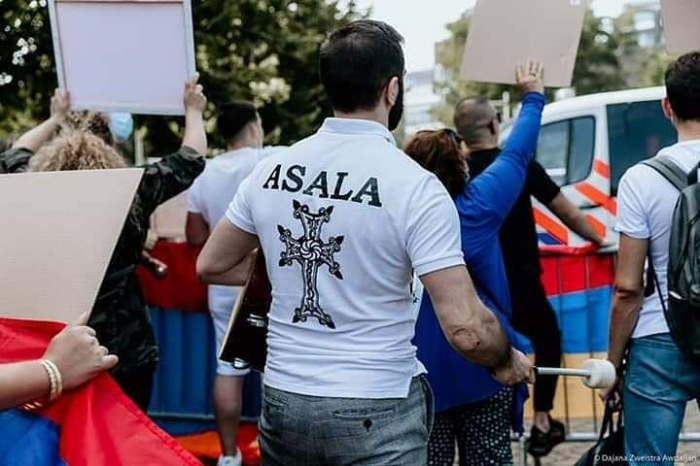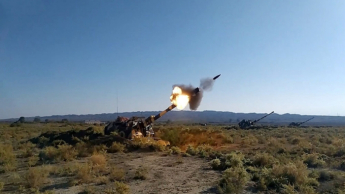Anniversaries without echo: Why does France forget the ASALA attacks?

In the last decades of the 20th century, France faced a series of bloody terrorist attacks carried out by Armenian extremist groups, notably the Armenian Secret Army for the Liberation of Armenia (ASALA). These attacks, which left deep scars in the public consciousness, for some reason do not evoke painful memories among the French authorities today.
Here are a few examples.
On December 12, 1985, explosions were set off in two major stores in Paris - Gallerie Lafayette and Printemps, injuring 41 people. These attacks, which took place in crowded stores, became a symbol of senseless violence against civilians.
Additionally, from 1979 to 1983, Armenian terrorists carried out a series of other attacks aimed at both French and international targets, including attacks on airline offices, consulates, public places, and even explosions in cinemas and restaurants. These acts of terror not only caused damage and casualties among civilians but also created an atmosphere of fear and uncertainty in society.
Particularly tragic was the attack at Orly Airport on July 15, 1983, which claimed 8 lives and injured more than 60. This attack highlighted the vulnerability of public spaces and caused widespread anxiety among travelers and locals.
On August 5, 1980, ASALA terrorists attacked the Turkish consulate in Lyon, killing two and injuring several passersby. This act highlighted the growing threat of terrorism in France.
In 1980, several more attacks took place: on October 13, the Swiss tourism office in Paris was damaged, and on November 9, the Turkish consulate building in Strasbourg was severely damaged. ASALA claimed responsibility for both incidents.
On July 21, 1981, an explosion in a local store in Lausanne, carried out by Armenian terrorists, injured 20 women. On September 24 of the same year, four ASALA terrorists seized the Turkish consulate in Paris, injuring two and taking 56 people hostage.
On February 5, 1981, an Armenian group "National Movement of October 3rd" carried out explosions in American and French airline buildings in Paris, injuring one person and causing significant property damage.
On October 28, 1981, an attack in a Paris cinema injured three people. This attack highlighted that no place was safe from the terrorist threat.
On November 14, 1981, Armenian terrorists detonated a car near the Eiffel Tower and attacked a group of tourists on the Seine River. Fortunately, there were no casualties. The next day, November 15, a McDonald's restaurant in Paris was bombed, also without casualties.
On November 16, 1981, an attack at the Gare de l'Est in Paris injured two passersby. These continuous attacks created an atmosphere of fear and uncertainty among the population.
On July 21, 1982, an explosion near a café on Place Saint-Severin in Paris injured 16 people. On July 26 of the same year, Armenian terrorists attacked the Pub Saint-Germain bar, injuring two women.
On February 28, ASALA terrorists attacked the "Marmara" tourist agency in Paris, killing a French employee of the agency and injuring four others.
On July 31, 1983, French authorities were forced to make an emergency landing of two planes due to threats from Armenian terrorists, with 424 passengers on board.
On February 8, 1984, ASALA threatened to bomb a plane en route to New York from Paris, causing great anxiety.
According to information disseminated by some French media, a secret agreement was concluded between France and ASALA in early 1982. This document allegedly contained France's commitment to pressure Turkey over "genocide" accusations and to provide certain freedoms to ASALA members at airports. In return, ASALA pledged to refrain from terrorist acts on French territory. However, it appears that this agreement was violated, as subsequent events showed that ASALA not only failed to keep its word but also carried out several serious terrorist acts, including the explosion at Orly Airport and other crimes.
Why have we returned to discussing terrorist attacks in France? To remind local media of significant historical events, namely the attack that took place on December 12, 1985, in Paris (yesterday marked 38 years since that attack). On that day, Armenian terrorists carried out nearly simultaneous explosions in two famous department stores in the French capital - Gallerie Lafayette and Printemps. However, it seems that the French media, for unknown reasons, missed the opportunity to cover this important event in their publications. Instead, they enthusiastically reported on the trip of employees of the Azerbaijani news agency Azertag to France's former colony, New Caledonia, accusing them of espionage.
This reminder to the French media serves to emphasize the importance of covering more significant and serious topics, such as terrorist acts in France.
In general, the attitude of the French media towards terrorist attacks carried out by ASALA raises serious questions and criticism. First, it seems that these media outlets demonstrate insufficient attention and, possibly, even a careless attitude towards the feelings of their fellow citizens affected by ASALA's actions. The tragedies that shook the lives of many do not receive proper recognition and coverage, which can be perceived as ignoring the deep emotional and psychological wounds of these victims.
Second, although France's history is marred by numerous terrorist attacks committed by ASALA, including major and high-profile incidents, it seems that the anniversaries of these tragic events go unnoticed in the French media. This lack of attention to the anniversaries of such tragedies may seem not only as an omission in respecting historical memory but also unfair to those who lost their loved ones and friends. Such neglect of important dates related to national tragedies highlights a possible imbalance in news coverage and priorities of the French media, which may selectively approach topics worthy of public attention.
The Rocket and Artillery formations of the Azerbaijan Army conduct live-fire exercises in accordance with the combat training plan for 2021, the Ministry of Defense of Azerbaijan told Baku Tribune.
LAST NEWS






.jpg&h=67&w=67&zc=1&q=100)













